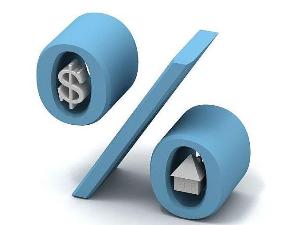 I work with a number of first-time buyers, so when I saw this article a few days ago I thought it would be a good idea to post it to my blog. Following is the article by Paul Brent as it appeared in the Sept 30th edition of the Globe and Mail: You've been to the open houses, explored various neighbourhoods and perhaps even checked out local schools before settling on the home of your dreams. Now it's time to negotiate your first mortgage, a process which done right, could save you tens of thousands of dollars.
I work with a number of first-time buyers, so when I saw this article a few days ago I thought it would be a good idea to post it to my blog. Following is the article by Paul Brent as it appeared in the Sept 30th edition of the Globe and Mail: You've been to the open houses, explored various neighbourhoods and perhaps even checked out local schools before settling on the home of your dreams. Now it's time to negotiate your first mortgage, a process which done right, could save you tens of thousands of dollars.
Today's low interest rates have made buying that first home easier but it can also breed complacency. Rates will rise eventually so purchasers need to not only find a place they can afford, but ensure that they have negotiated the best mortgage terms possible and educated themselves on the document they are about to sign.
When it comes to mortgages, the first lesson is that not all mortgage lenders are created equal. That become quickly apparent to Naysan and Nahid Hariri, both 28, who are mortgage shopping for a $438,000 home now being built for them in Richmond Hill, Ont. “I found that a couple of institutions were a number of (interest) points higher than others,” he said.
The Hariris also found that the big banks, which tend to have higher posted rates than smaller financial institutions, were reluctant to lower their rates. “My understanding with banks is that if you have services with them, they tend to work out something better for you.” Because first-timers typically have less money parked with a particular institution, they tend not to have the leverage to demand lower rates.
The stakes and the learning curve are higher for first-timers. “Usually they are borrowing a lot more money and there is quite a lot to learn,” said Lois Volk, a 22-year mortgage broker with Invis in Toronto's trendy Beaches neighbourhood. “If they don't know, certainly we go through everything: make sure they are comfortable with the concept, what their payments are going to be, work through a budget if necessary and help them consolidate debt if necessary.”
But before couples even start house shopping, they should meet with their bank to obtain a pre-approval or, at the very least, a rate guarantee, said Martin Beaudry, head of lending underwriting at ING Direct.
Mr. Beaudry said that the difference between the big banks and independent firms is rate transparency. “The big banks start very high with their rates and you need to negotiate the rates down and sometimes they have as much as 1.5 per cent leeway on their posted rates while small institutions like ING Direct will post their lowest rate.”
ING Direct's most popular mortgage term among its customers is its 5-year fixed rate, currently sitting at 3.99 per cent. Five-year, fixed rate mortgages for the big banks range between 5.49 and 5.55 per cent, according to Globe and Mail data. The lowest rate found was 3.94 per cent offered by Meridian Credit Union.
Crunch The Numbers
Obtaining a pre-approved mortgage forces new buyers take a long, hard look at not just how much house their bank says they can afford, but how much debt they are willing to shoulder to get into home ownership, combined with whatever else they owe. Be aware that your comfort zone and the lending institution's are not necessarily the same. Banks are in the business of maximizing earnings which could translate into a mortgage which you can afford – on paper at least – but one that leaves little money left over for fun indulgences.
The Hariris, who both work for IBM Canada, decided to determine their debt threshold before sitting down with a financial institution. “The first thing you need to do is figure out your monthly budget,” said Mr. Hariri. “My wife and I sat down for months in advance to see exactly what we can afford, what is comfortable for our lifestyle.”
On their own, they also managed to say the 20 per cent of the purchase price for a down payment so that they don't have to carry the extra expense of mortgage insurance from Canada Mortgage and Housing Corporation (CMHC).
Financial institutions say that mortgage borrowers should devote no more than 30 to 32 per cent of their combined gross incomes to mortgage payments, property taxes and heat. “CMHC will also allow you to go up to 40 per cent or sometimes slightly higher if you have no other debt,” said Ms. Volk, the mortgage broker.
As ING Direct clients, the Hariris are leaning towards taking a fixed rate mortgage with that bank. While financial experts say that over the long term borrowers do better with variable rates, new buyers often opt for the peace of mind that fixed rates offer.
And while the Hariris are not using a mortgage broker to help them hammer out the best deal possible, it is an increasingly popular option. Last year 33 per cent of purchasers used mortgage brokers, up from 27 per cent the prior year, according to a CMHC survey.
Do Some Research
Mortgage brokers, who are typically paid on a commission basis by lenders, may save borrowers some money on the rates and terms they negotiate, but Ms. Volk says a large part of their role is educating people. “The main things to watch for is terms and conditions of the mortgage.”
With the recent drop in mortgage rates, Ms. Volk says many people have been dismayed to find they cannot take advantage of potentially huge interest rate savings because the “break fee” to get out of their current mortgage is prohibitive. Interest penalties for getting out of your mortgage early vary and may take the form of a three-month interest payment or interest rate differential charge. Make sure to get your lender to spell out the break fee to you, and get it on paper.
Some lenders offer “blend and extend” options which can allow some borrowers to get at least some of the benefit of lower rates. Typically, the penalties for breaking the original mortgage are included in the blended rate calculation so borrowers are not faced with an upfront charge.
Pre-payment privileges are also something first-time buyers should seek for two reasons: Because they are typically early in their careers, they can reasonably expect higher take-home earnings through promotions or switching employers for a better paying job and are able to make additional payments to the mortgage. As well, the interest on mortgages is front-end loaded, meaning that the majority of payments in the early years of 25-year amortization mortgage go to interest, not principal.
The Math
Here is why shopping around for the best rate possible is no trifling matter. Take a half-point interest rate difference on a 5-year, $500,000 mortgage with a 25-year amortization period. With a 5.75 per cent rate, the mortgage holder would have monthly payments of $3,125.11 versus $2,979.59 at 5.25 per cent. That doesn't sound like much until you run the 5-year amortization schedule. At the higher rate, the buyers made mortgage payments of $187,506.60, with 72 per cent of that, or $135,086.29, going towards interest payments. At the 5.25 per cent rate, the mortgage holders not only pay $178,775.40 less, but 68.8 per cent or $123,032.28 less goes to interest and more to chipping away at the principal. The difference? A total of $8,731.20 less in payments - $12,054.01 in interest saved and an extra $3,322.81 to the reduction of the principal owed.
For access to a Mortgage Calculator and other financial tools, visit my website here.
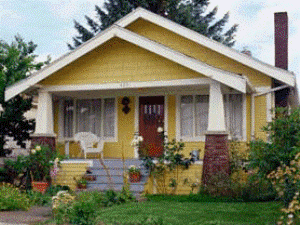 This week I helped a young couple purchase their first home, a detached bungalow in the Briar Hill – Belgravia area. Without going into the specific financial details of their purchase, I'll say that they got the home for below the $325,000 price point (this includes purchase price + approx $5000.00 in reno's that they'll do prior to move-in). We’re talking a fully detached house with a living room, separate dining room, large master bedroom, and a 2nd bedroom on the main level... plus a family room, 2nd bathroom and 3rd bedroom on the lower level... plus front pad parking and a great backyard. All for under $325,000!
This week I helped a young couple purchase their first home, a detached bungalow in the Briar Hill – Belgravia area. Without going into the specific financial details of their purchase, I'll say that they got the home for below the $325,000 price point (this includes purchase price + approx $5000.00 in reno's that they'll do prior to move-in). We’re talking a fully detached house with a living room, separate dining room, large master bedroom, and a 2nd bedroom on the main level... plus a family room, 2nd bathroom and 3rd bedroom on the lower level... plus front pad parking and a great backyard. All for under $325,000!
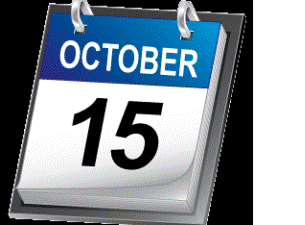 In the first two weeks of October, Greater Toronto REALTORS® reported 3,631 sales – up 34 per cent compared to the first two weeks of October 2008. The average price for these transactions was up 17 per cent year-over-year to $414,479.
In the first two weeks of October, Greater Toronto REALTORS® reported 3,631 sales – up 34 per cent compared to the first two weeks of October 2008. The average price for these transactions was up 17 per cent year-over-year to $414,479.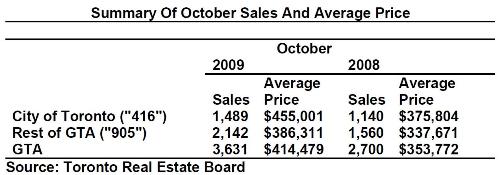

 In September 2009, Greater Toronto REALTORS® reported 8,196 sales, up 28 per cent from September 2008. The average price for September transactions was $406,877 – up by 10 per cent compared to the same month last year.
In September 2009, Greater Toronto REALTORS® reported 8,196 sales, up 28 per cent from September 2008. The average price for September transactions was $406,877 – up by 10 per cent compared to the same month last year.
 I work with a number of first-time buyers, so when I saw this article a few days ago I thought it would be a good idea to post it to my blog. Following is the article by Paul Brent as it appeared in the Sept 30th edition of the Globe and Mail: You've been to the open houses, explored various neighbourhoods and perhaps even checked out local schools before settling on the home of your dreams. Now it's time to negotiate your first mortgage, a process which done right, could save you tens of thousands of dollars.
I work with a number of first-time buyers, so when I saw this article a few days ago I thought it would be a good idea to post it to my blog. Following is the article by Paul Brent as it appeared in the Sept 30th edition of the Globe and Mail: You've been to the open houses, explored various neighbourhoods and perhaps even checked out local schools before settling on the home of your dreams. Now it's time to negotiate your first mortgage, a process which done right, could save you tens of thousands of dollars. 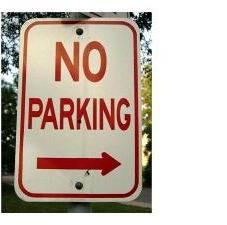 The simple answer is... No, not if you have the option of purchasing a property that does have parking. Of course not everyone is going to have this option and as such purchasing without parking may be the only way to go.
The simple answer is... No, not if you have the option of purchasing a property that does have parking. Of course not everyone is going to have this option and as such purchasing without parking may be the only way to go.  In the first two weeks of September, Greater Toronto REALTORS® reported 3,361 sales – up 23 per cent compared to the first two weeks of September 2008. The average price for these transactions was up eight per cent year-over-year to $393,818.
In the first two weeks of September, Greater Toronto REALTORS® reported 3,361 sales – up 23 per cent compared to the first two weeks of September 2008. The average price for these transactions was up eight per cent year-over-year to $393,818.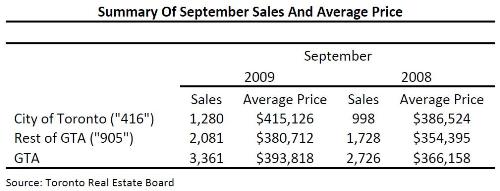
 Anyone with a car in this great city of ours knows that having a convenient, reliable space to park it is a coveted commodity. If you live in a house, then private driveway or garage parking is king. Mutual drive (if it's wide enough) and rear/front pad parking follow, with street permit parking rounding out the most common options.
Anyone with a car in this great city of ours knows that having a convenient, reliable space to park it is a coveted commodity. If you live in a house, then private driveway or garage parking is king. Mutual drive (if it's wide enough) and rear/front pad parking follow, with street permit parking rounding out the most common options.  In August 2009, Greater Toronto REALTORS® reported 8,035 sales, up 27% per cent from August 2008. The average price for August transactions was $387,921 – up by six per cent compared to the same month last year.
In August 2009, Greater Toronto REALTORS® reported 8,035 sales, up 27% per cent from August 2008. The average price for August transactions was $387,921 – up by six per cent compared to the same month last year.
 Following is an article by Tony Wong as it appeared in the Aug 26th edition of the Toronto Star: What happens if you had a recession and housing prices didn't really go down? That's the scenario Toronto could be in by the end of 2009, as economists scramble to revise forecasts.
Following is an article by Tony Wong as it appeared in the Aug 26th edition of the Toronto Star: What happens if you had a recession and housing prices didn't really go down? That's the scenario Toronto could be in by the end of 2009, as economists scramble to revise forecasts.  In the first two weeks of August, Greater Toronto REALTORS® reported 3,832 sales – up 27 per cent compared to the first two weeks of August 2008. The average price for these transactions was up three per cent year-over-year to $383,796.
In the first two weeks of August, Greater Toronto REALTORS® reported 3,832 sales – up 27 per cent compared to the first two weeks of August 2008. The average price for these transactions was up three per cent year-over-year to $383,796.
 In July 2009, Greater Toronto REALTORS® reported a record 9,967 sales, up 28 per cent from July 2008. The average price for July transactions was $395,414 – up by six per cent compared to the same month last year.
In July 2009, Greater Toronto REALTORS® reported a record 9,967 sales, up 28 per cent from July 2008. The average price for July transactions was $395,414 – up by six per cent compared to the same month last year.